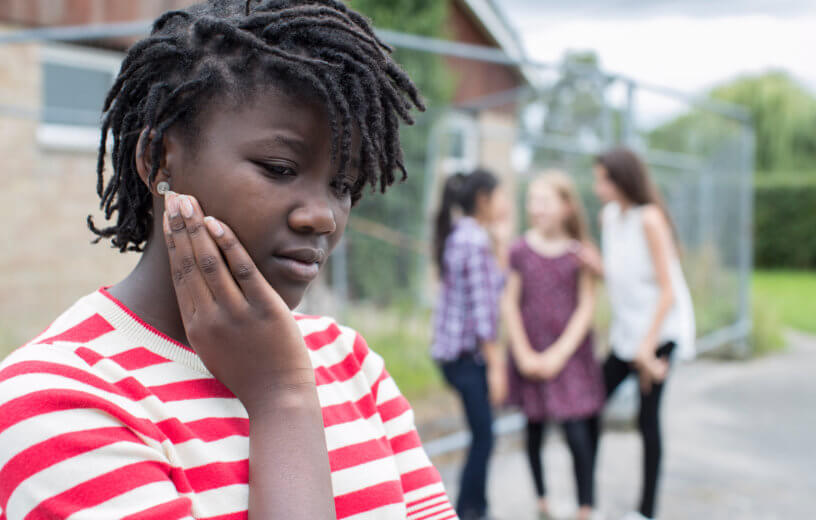PISCATAWAY, N. J. — African-American teenagers in the United States are dealing with discrimination multiple times per day, most frequently online, often times causing depression and negative thoughts. That’s the main finding from a new study out of Rutgers University that surveyed the day-to-day lives of 101 black teenagers living in mostly black neighborhoods in Washington, DC.
These “microaggressions” are so prevalent, that the research team estimate the average African-American adolescent in the U.S. experiences over five incidents each and every day. The study was conducted in an effort to examine just how often black teenagers are experiencing racial discrimination, whether that be personally, vicariously, online, or offline, in modern-day America.
“This research reflects what researchers and activists have asserted for years: Black adolescents are forced to face anti-black microaggressions on a daily basis. Importantly, this study expands the research on the many ways that discrimination happens, whether it is being teased by peers, asked to speak for their racial group in class or seeing a racist post on social media,” says lead author Devin English, an assistant professor at Rutgers School of Public Health, in a release.
Over a period of two weeks, each participating teen (aged 13-17) was surveyed on a daily basis regarding their personal experiences with discrimination. Additionally, the research team measured changes in each teen’s psychological state during the observation period. In total, the teens reported over 5,600 discrimination incidents — for an average of over five experiences per day.
Some of the incidents described by participating teens included teasing or jokes about their physical appearance and more aggressive name-calling, the latter taking place much more often online. Across the board, however, these experiences almost always resulted in short-term depressive symptoms and thoughts.
More specific examples described by the study’s authors were black teens being constantly teased about the natural appearance of their hair, seeing racist jokes online, or seeing a family member or friend being treated unfairly due to the color of their skin.
“Racial teasing is important because it is one of the most common ways adolescents communicate about race,” English adds. “Critically, young people and adults, such as teachers, often see this teasing as harmless and choose not to address it. Our results, however, show several types of racial teasing are harmful for black adolescents.
“Although public discourse can indirectly or directly blame health inequities on black youth, our study provides evidence that racial discrimination in society is a fundamental cause of these health inequities,” he concludes. “Knowing this, people in positions of power such as clinicians, school administrators and policy makers have a responsibility to consider discrimination as a critical aspect of the daily experience and health of black teens. Racial discrimination prevention should be a public health imperative.”
The study is published in the Journal of Applied Developmental Psychology.
